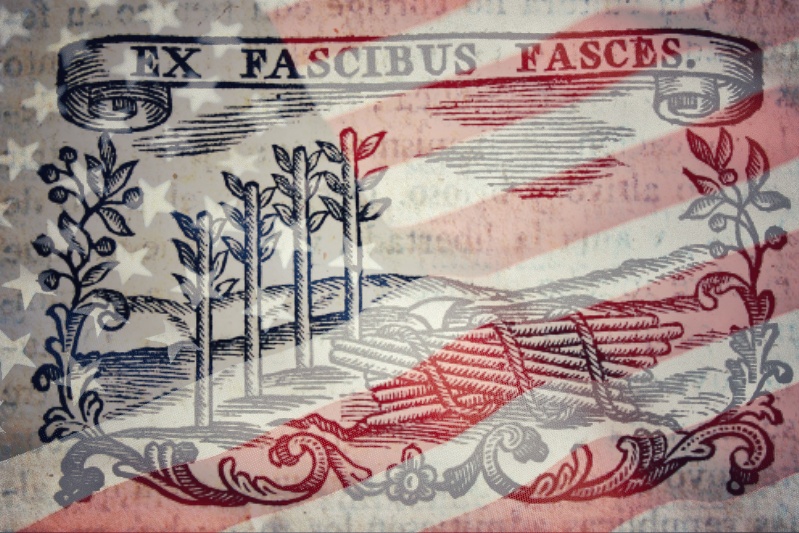- American Fascism
- Planned Capitalism
- Fascist Italy
- German Fascism
- Economic Fascism
The Free World Flirts With Fascism
Few Americans are aware of or can recall how so many Americans and Europeans viewed economic fascism as the wave of the future during the 1930s. The American Ambassador to Italy, Richard Washburn Child, was so impressed with “corporatism” that he wrote in the preface to Mussolini’s 1928 autobiography that “it may be shrewdly forecast that no man will exhibit dimensions of permanent greatness equal to Mussolini. . . . The Duce is now the greatest figure of this sphere and time. 1
Benito Mussolini, My Autobiography (New York: Charles Scribner’s Sons, 1928). ”Winston Churchill wrote in 1927 that “If I had been an Italian I am sure I would have been entirely with you” and “don the Fascist black shirt.” 2Cited in John T. Flynn, As We Go Marching (New York: Doubleday, 1944), p. 70. As late as 1940, Churchill was still describing Mussolini as “a great man.”
U.S. Congressman Sol Bloom, Chairman of the House Foreign Relations Committee, said in 1926 that Mussolini “will be a great thing not only for Italy but for all of us if he succeeds. It is his inspiration, his determination, his constant toil that has literally rejuvenated Italy . .”3Cited in John T. Flynn, As We Go Marching (New York: Doubleday, 1944), p. 70.
One of the most outspoken American fascists was economist Lawrence Dennis. In his 1936 book, The Coming American Fascism, Dennis declared that defenders of “18th-century Americanism” were sure to become “the laughing stock of their own countrymen” and that the adoption of economic fascism would intensify “national spirit” and put it behind “the enterprises of public welfare and social control.” The big stumbling block to the development of economic fascism, Dennis bemoaned, was “liberal norms of law or constitutional guarantees of private rights.”
Certain British intellectuals were perhaps the most smitten of anyone by fascism. George Bernard Shaw announced in 1927 that his fellow “socialists should be delighted to find at last a socialist [Mussolini] who speaks and thinks as responsible rulers do.” 4Benito Mussolini, Fascism: Doctrine and Institutions (Rome: Adrita Press, 1935), p. 10. He helped form the British Union of Fascists whose “Outline of the Corporate State,” according to the organization’s founder, Sir Oswald Mosley, was “on the Italian Model.” While visiting England, the American author Ezra Pound declared that Mussolini was “continuing the task of Thomas Jefferson.” 5
Alastair Hamilton, The Appeal of Fascism: A Study of Intellectuals and Fascism, 1919-1945 (New York: Macmillan, 1971), p. 288
Thus, it is important to recognize that, as an economic system, fascism was widely accepted in the 1920s and ‘30s. The evil deeds of individual fascists were later condemned, but the practice of economic fascism never was. To this day, the historically uninformed continue to repeat the hoary slogan that, despite all his faults, Mussolini at least “made the trains run on time,” insinuating that his interventionist industrial policies were a success.


